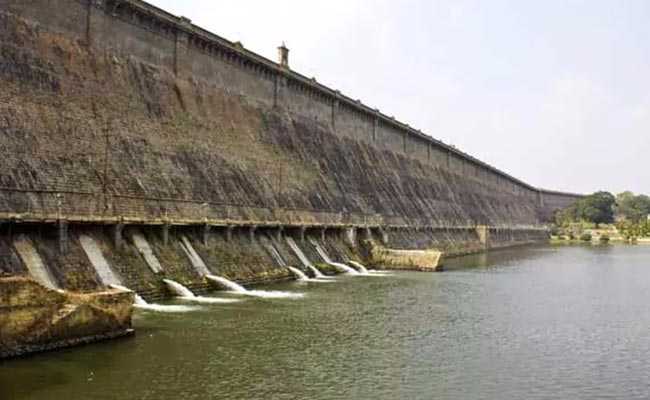
Two days after Karnataka voted in the high-decibel Assembly elections that kept the ruling BJP on its toes, the centre finally submitted its draft on Cauvery water sharing arrangement in the Supreme Court. The delay in the setting up of the Cauvery Management Board, as directed by the Supreme Court, led to protests across Tamil Nadu, which is supposed to get its share of Cauvery water from neighbouring Karnataka, but hasn't. The top court has asked Karnataka, Tamil Nadu, Kerala and Puducherry, the other two beneficiaries of Cauvery, to look into the centre's scheme. "Without going into the legalities, we will just see if the scheme is in consonance with our February verdict," a bench comprising Chief Justice Dipak Misra and Justices AM Khanwilkar and DY Chandrachud said. The court will take up the case on Wednesday.
Here are 10 points on the Cauvery issue:
In its landmark verdict on February 16, the Supreme Court had reduced Tamil Nadu's share of water from the river Cauvery while Karnataka's part got a boost. The court had also ordered setting up of the Cauvery Management Board to monitor the release of Cauvery water to Tamil Nadu by Karnataka by March 30. The deadline expired but the board wasn't set up triggering protests by farmers, political parties and even the film industry.
The delay was attributed to the Karnataka assembly elections as Prime Minister Narendra Modi and other ministers were busy with poll campaigning.
The centre today submitted its draft after the top court pulled it up last week for the delay in Cauvery Board and called it "sheer contempt". The court had asked the water resources secretary to be present in the hearing scheduled for today.
The centre has suggested a 10-member authority or board to regulate release of the Cauvery water. The authority's decision will be final and binding on all states, the centre said.
The authority will be headquartered in Bengaluru. While the dams in Karnataka and Tamil Nadu will be monitored by the authority, the states will be responsible for their maintenance, the draft said.
If Karnataka fails to release water, the authority will approach the centre. If, for some reason, Karnataka defaults, the water share has to be adjusted the following month.
After the hearing, Tamil Nadu Law Minister CV Shanmugam said the Supreme Court has done justice to the state. "We are happy. We will study the scheme. We also urge opposition parties in Tamil Nadu to stop their protests," he said.
Actor-turned-politician Kamal Haasan, however, isn't convinced. Taking a dig at what his party Makkal Needhi Maiyyam called the centre's "ambiguous response" to the Supreme Court, he said, "This is a political game. The Supreme Court has asked the centre to constitute the board. Then why is it asking the court to decide on whether it should be called a board or an authority? Is that a response or a question?"
The 765-km long Cauvery river, also called the Ganga of the south, is the lifeline for Karnataka and Tamil Nadu. The distribution of water between the southern neighbours has been a contentious issue for decades.
Tamil Nadu, which last year witnessed the worst drought in 140 years, accused the centre of playing politics at its expense. The ruling BJP didn't want to upset voters in Karnataka which is why it kept delaying the Cauvery Board, the farmers -- the most-affected community in the state -- had alleged.

